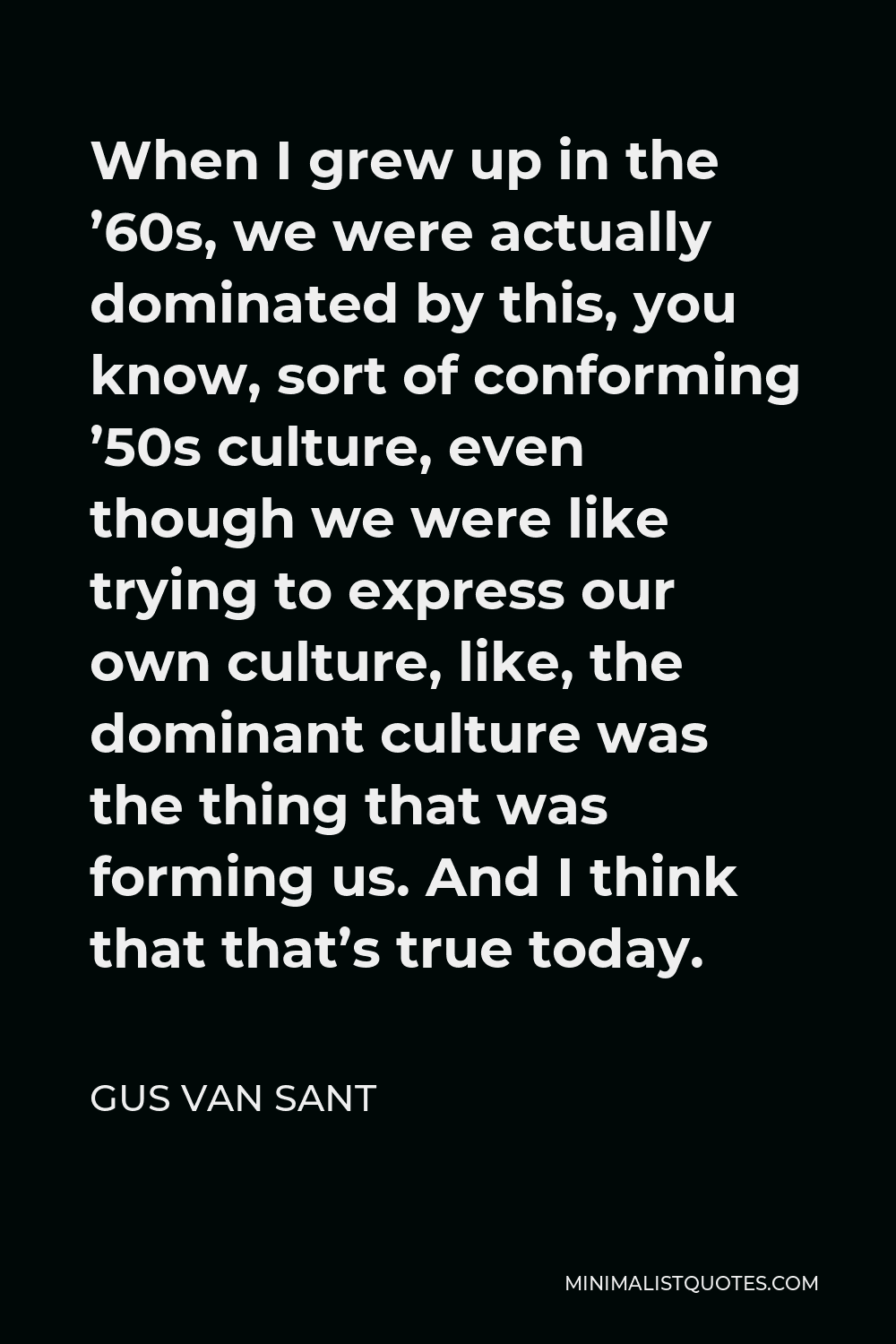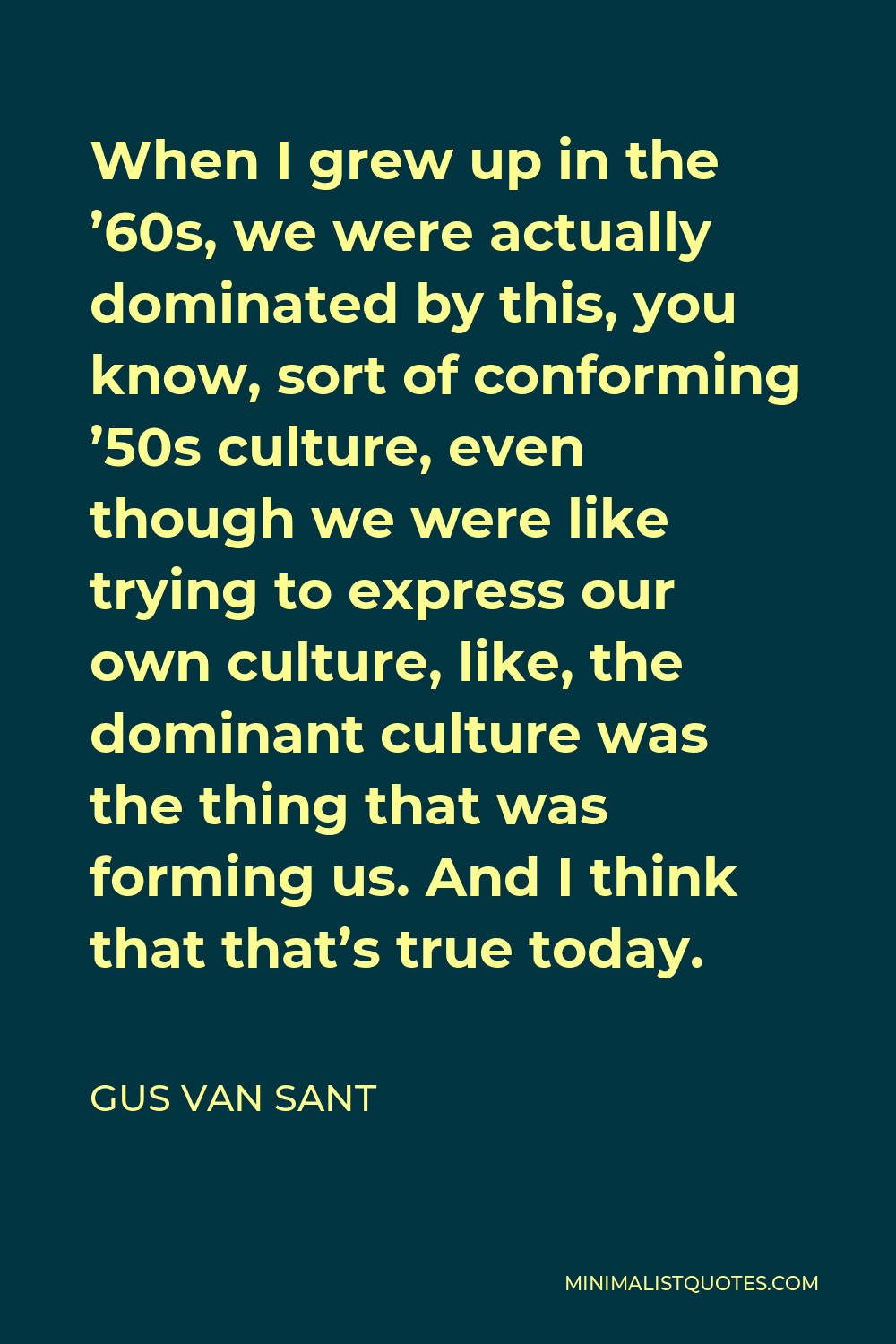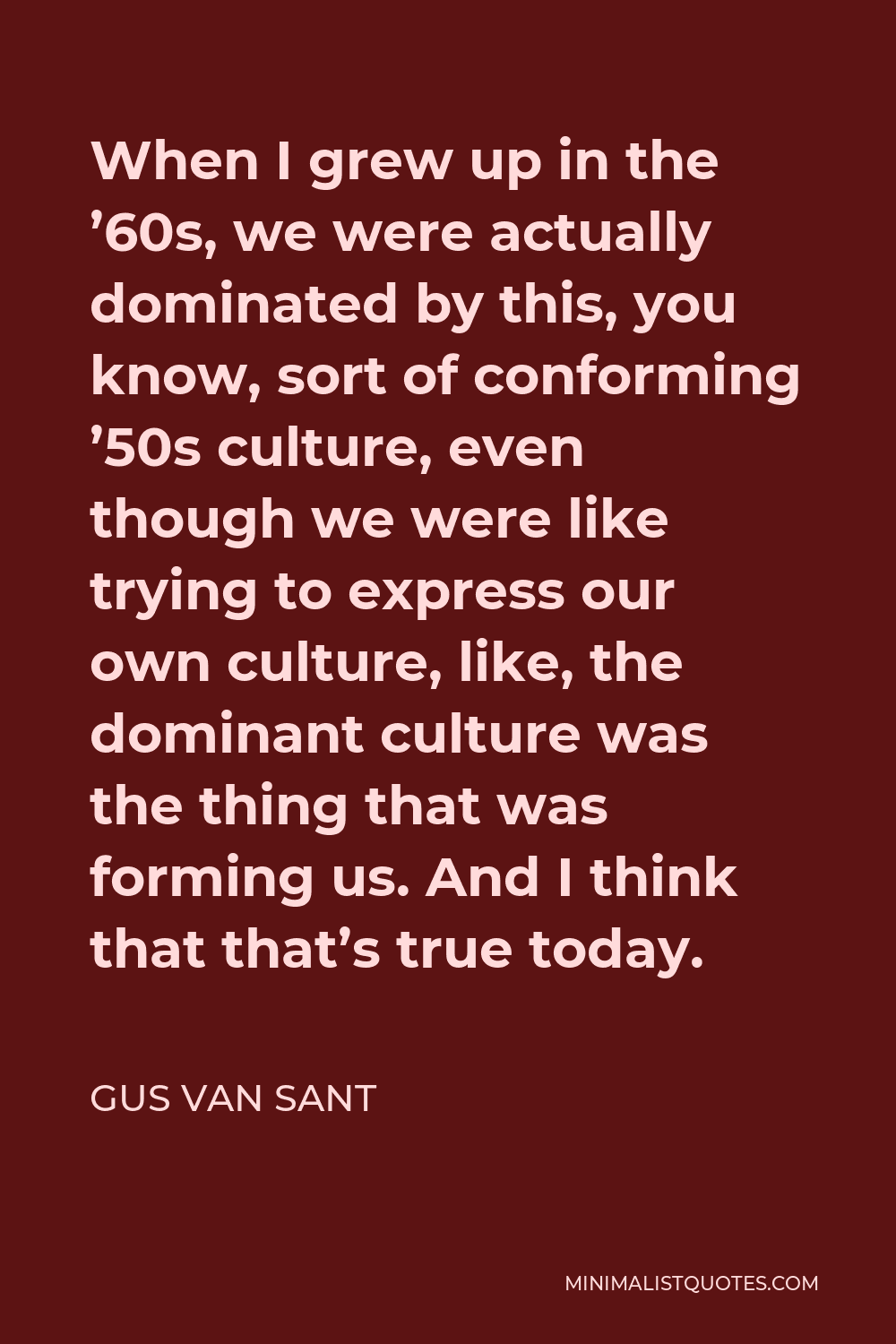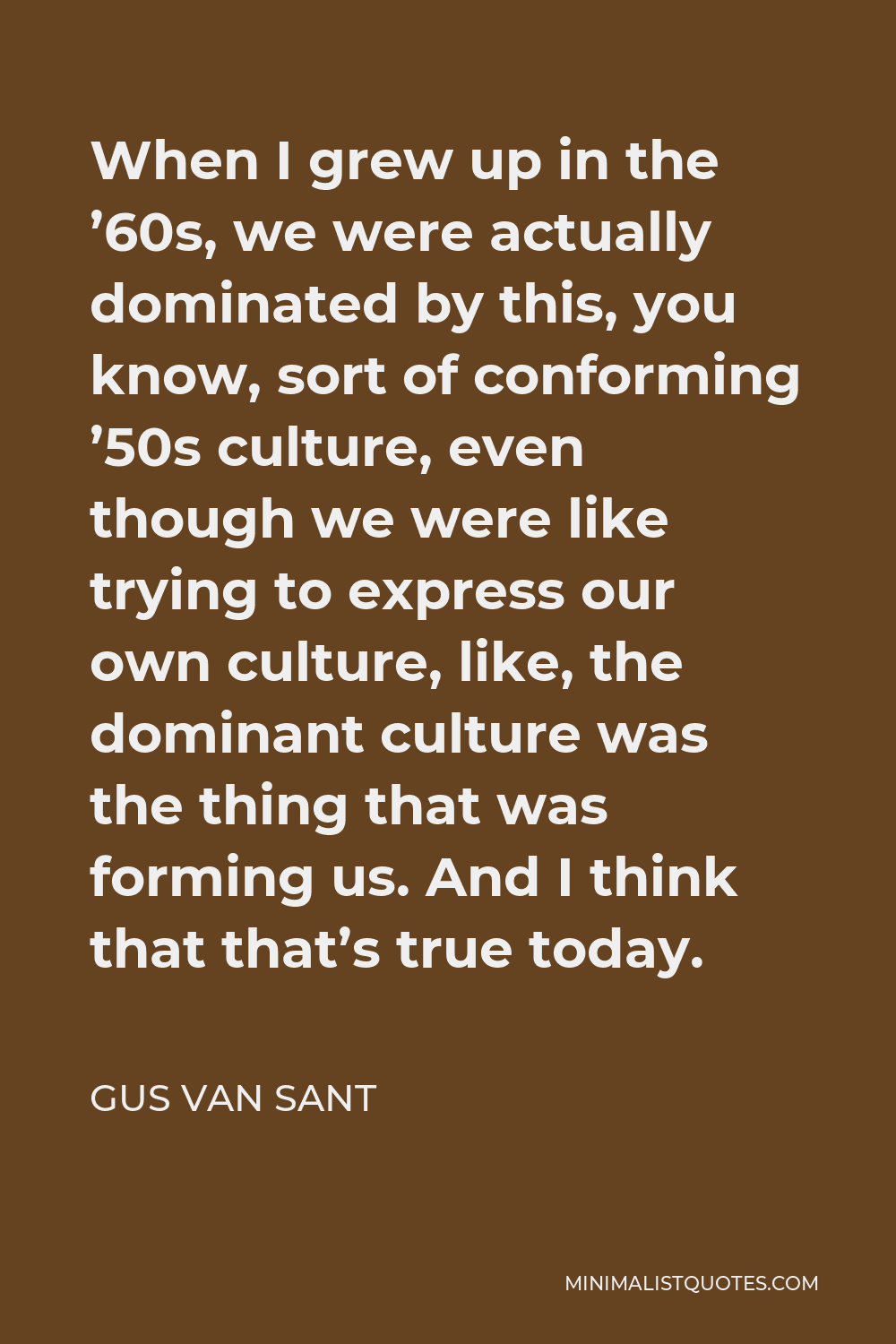No construction stiff working overtime takes more stress and straining than we did just to stay high.
GUS VAN SANTWhen I grew up in the ’60s, we were actually dominated by this, you know, sort of conforming ’50s culture, even though we were like trying to express our own culture, like, the dominant culture was the thing that was forming us. And I think that that’s true today.
More Gus Van Sant Quotes
-





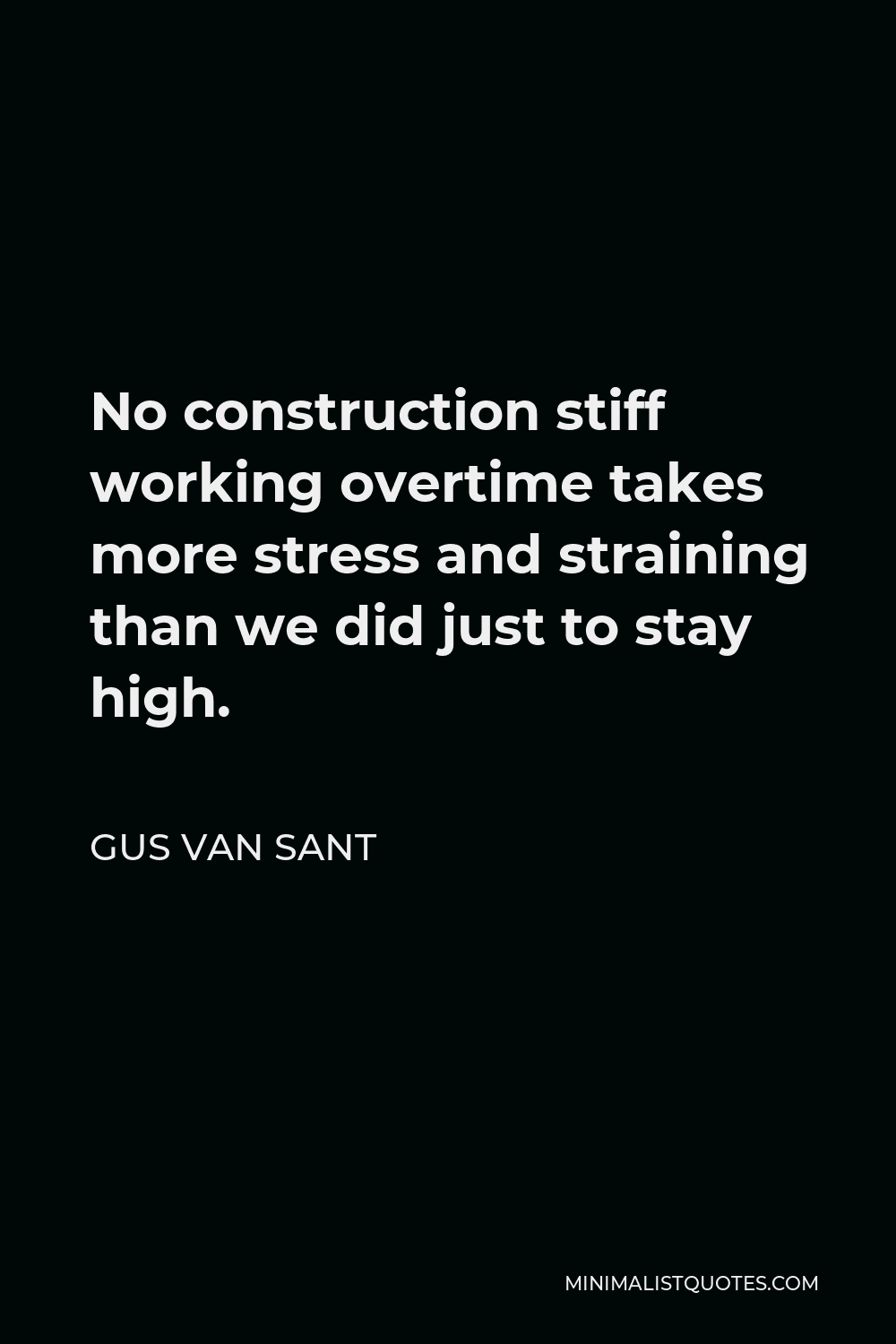
-





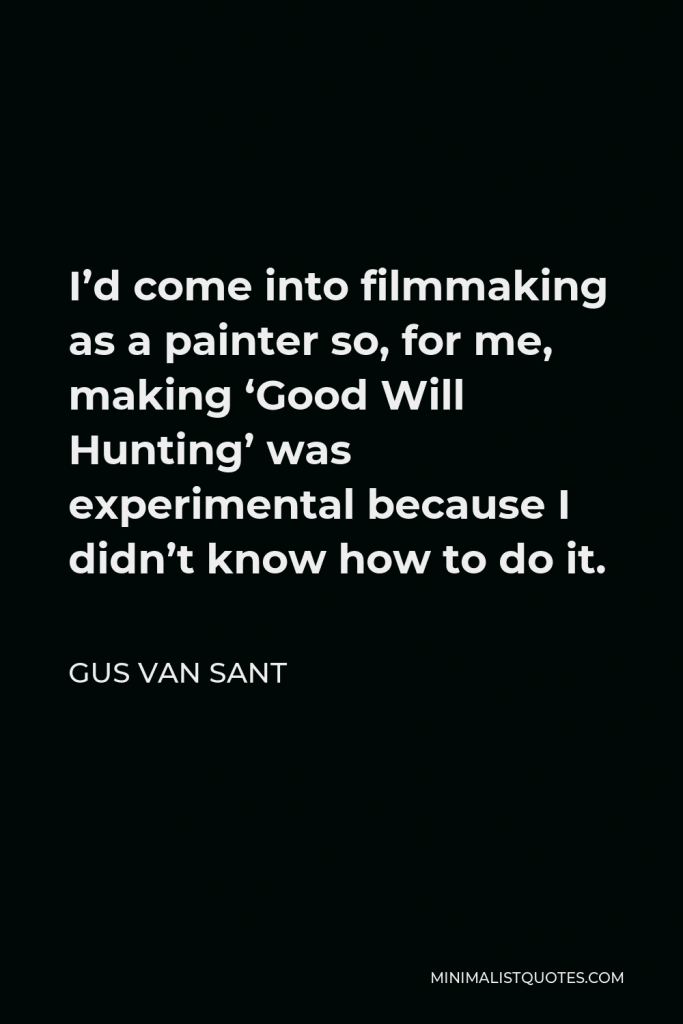

I’d come into filmmaking as a painter so, for me, making ‘Good Will Hunting’ was experimental because I didn’t know how to do it.
GUS VAN SANT -





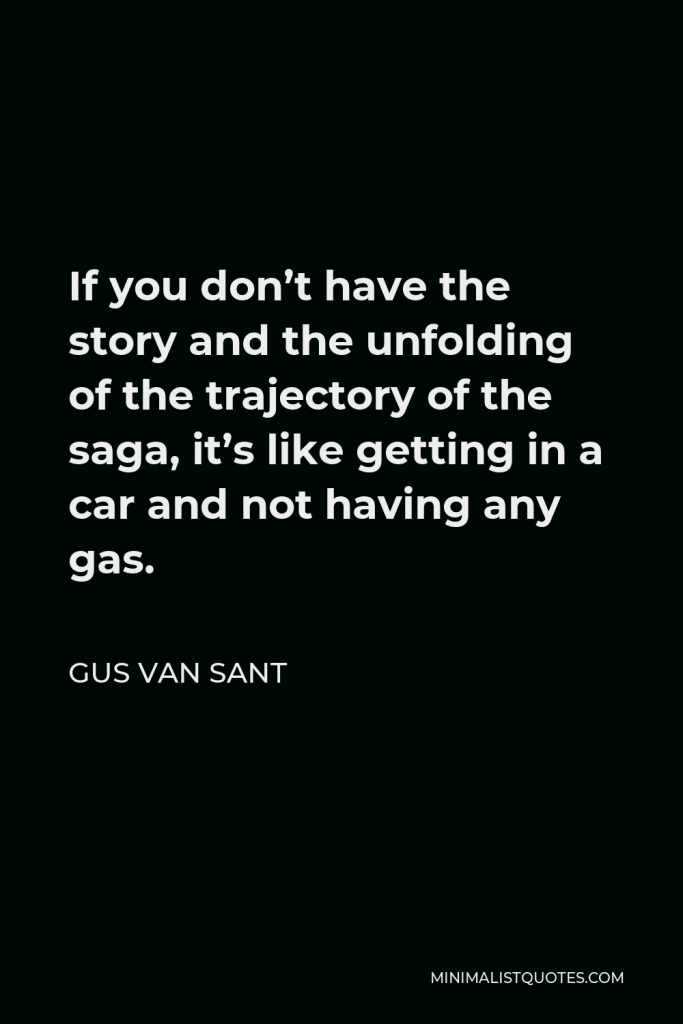

If you don’t have the story and the unfolding of the trajectory of the saga, it’s like getting in a car and not having any gas.
GUS VAN SANT -





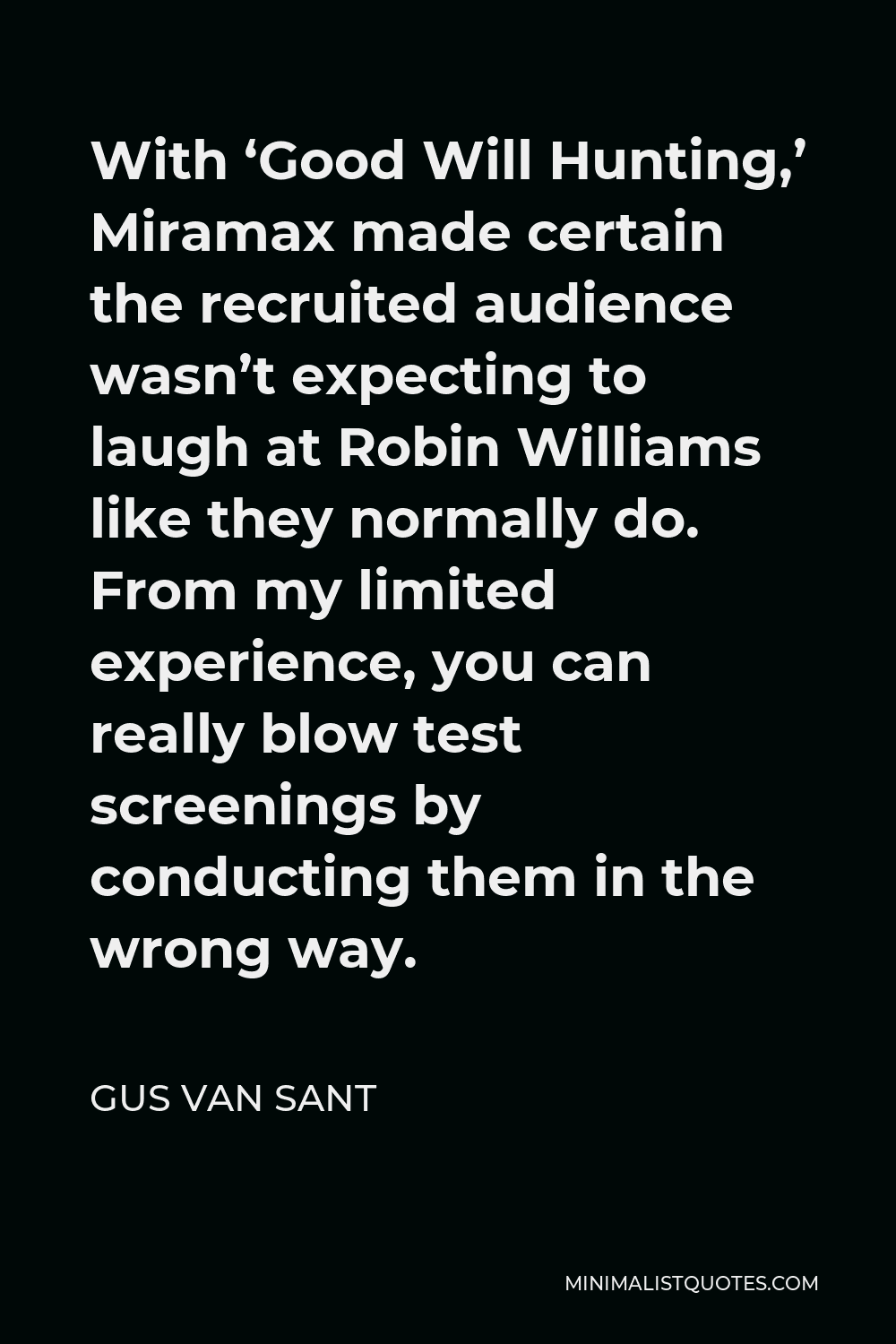
With ‘Good Will Hunting,’ Miramax made certain the recruited audience wasn’t expecting to laugh at Robin Williams like they normally do. From my limited experience, you can really blow test screenings by conducting them in the wrong way.
GUS VAN SANT -





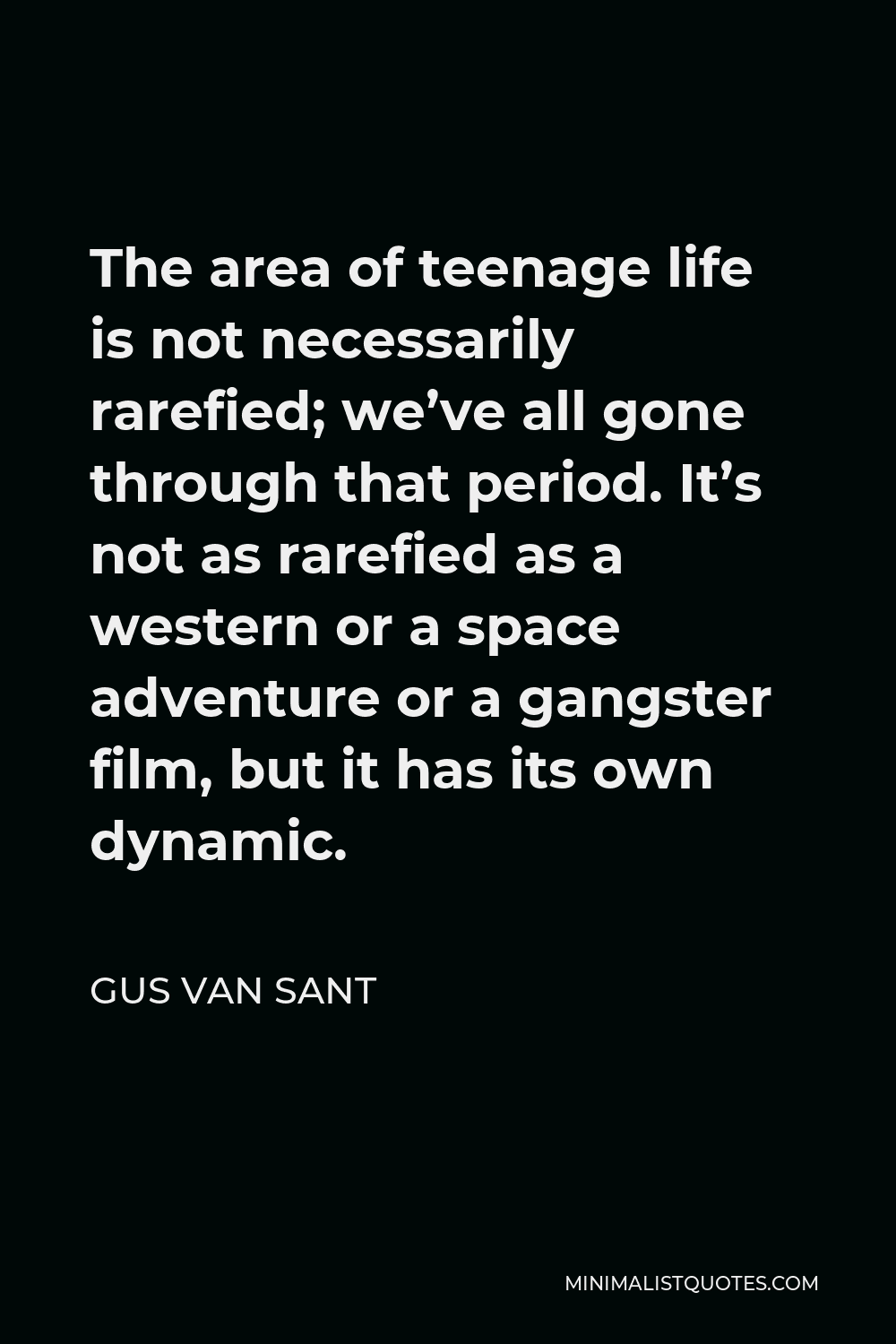
The area of teenage life is not necessarily rarefied; we’ve all gone through that period. It’s not as rarefied as a western or a space adventure or a gangster film, but it has its own dynamic.
GUS VAN SANT -





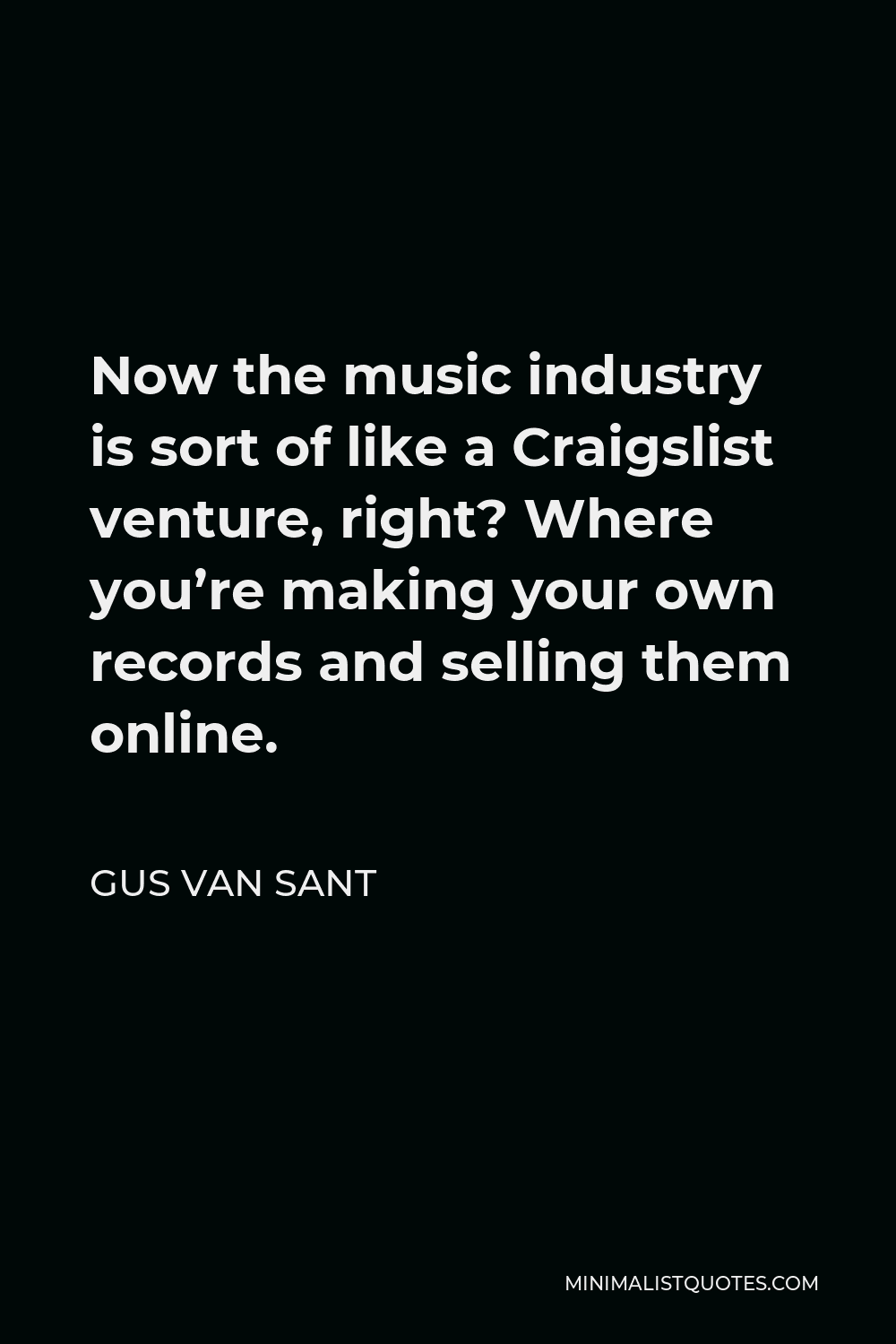
Now the music industry is sort of like a Craigslist venture, right? Where you’re making your own records and selling them online.
GUS VAN SANT -





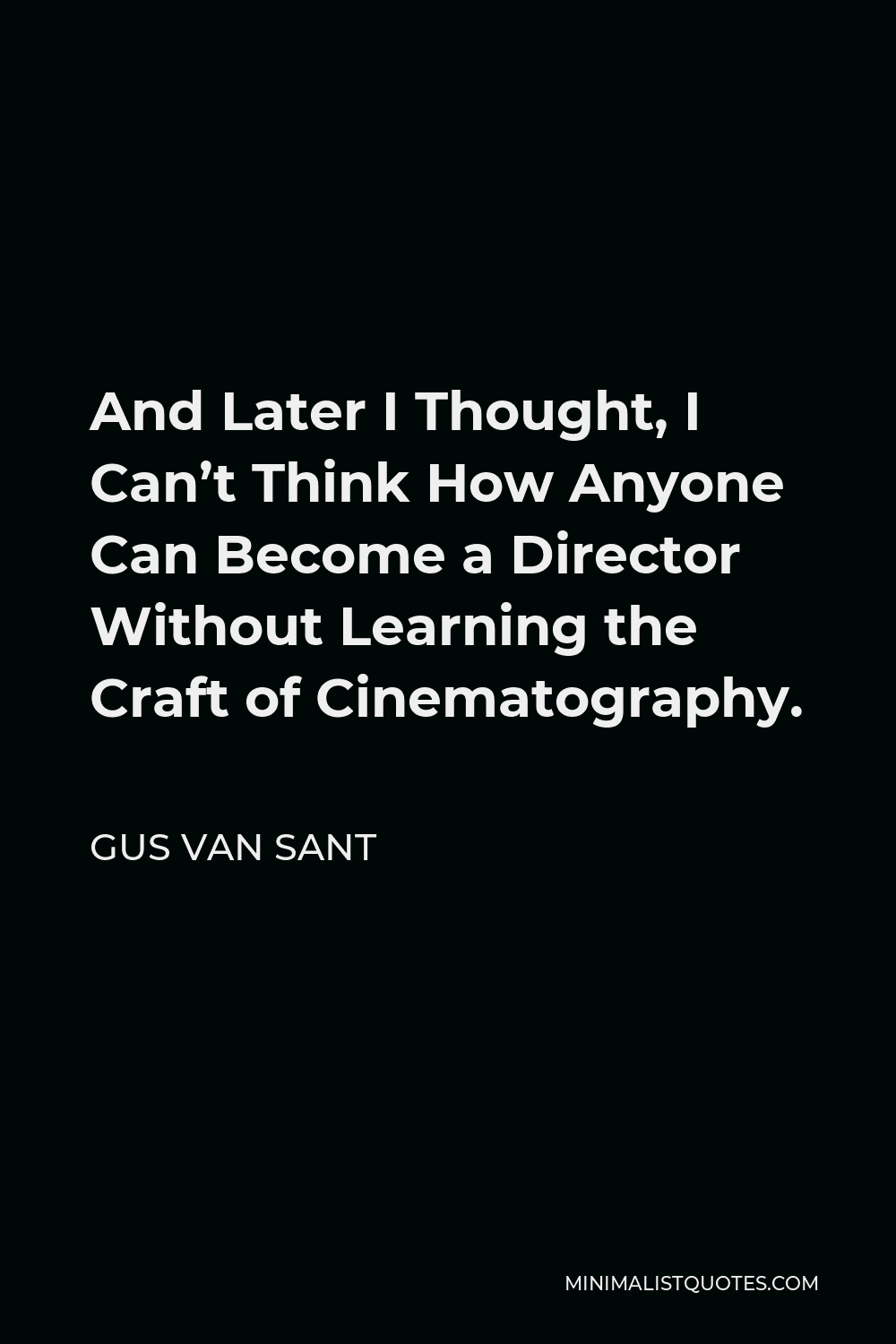
And Later I Thought, I Can’t Think How Anyone Can Become a Director Without Learning the Craft of Cinematography.
GUS VAN SANT -





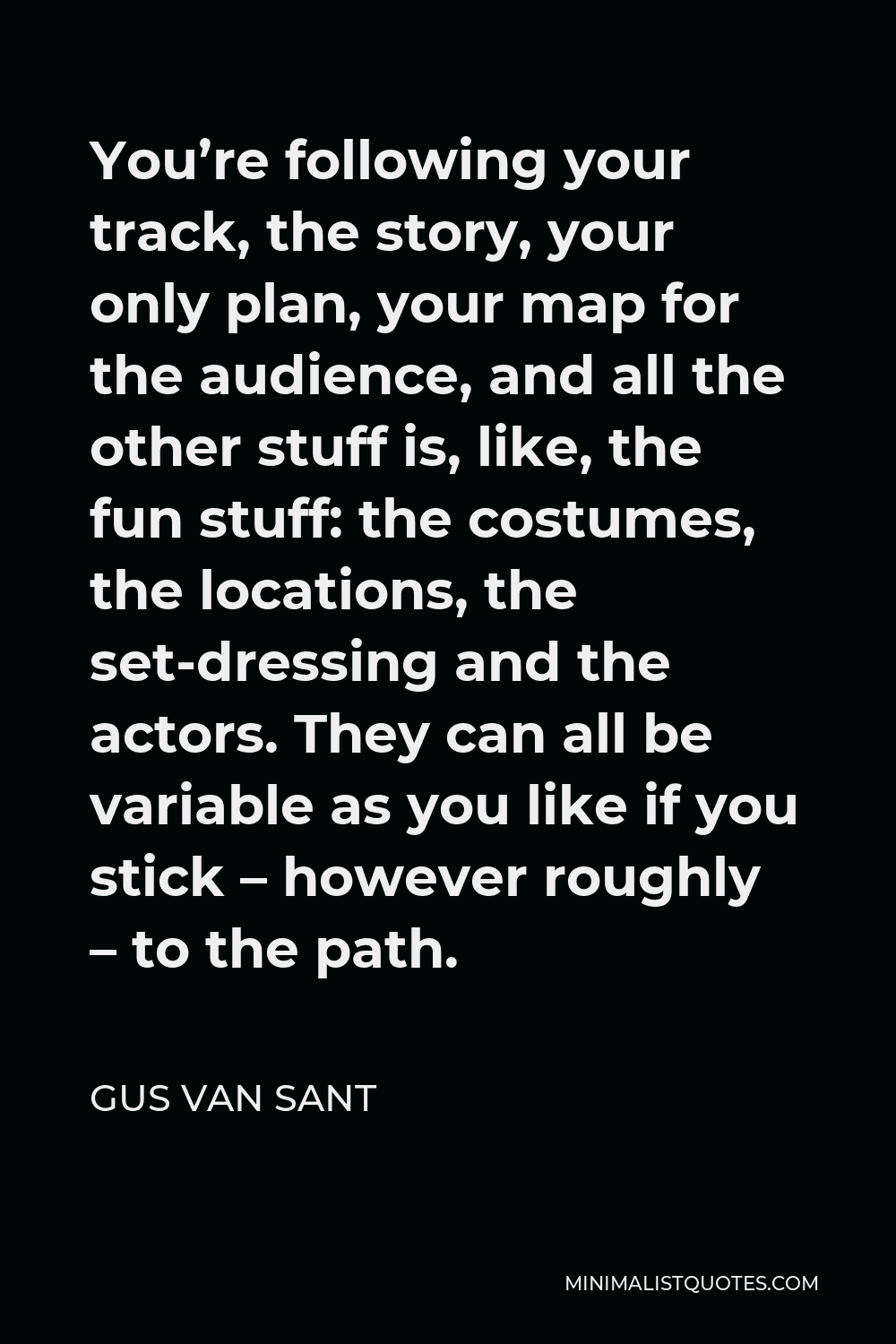
You’re following your track, the story, your only plan, your map for the audience, and all the other stuff is, like, the fun stuff: the costumes, the locations, the set-dressing and the actors. They can all be variable as you like if you stick – however roughly – to the path.
GUS VAN SANT -





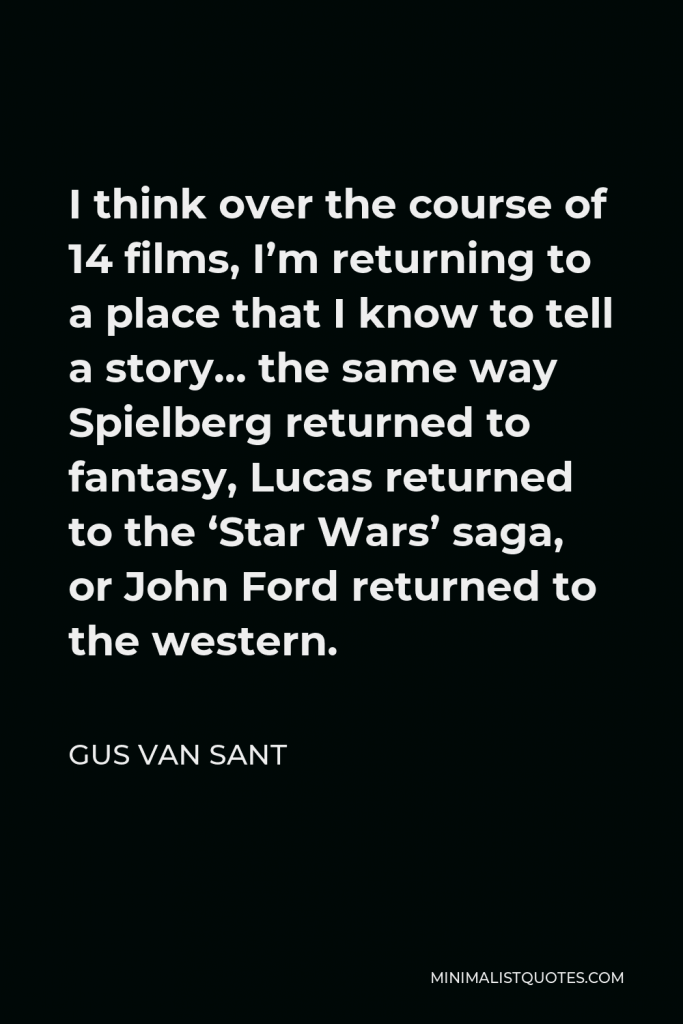

I think over the course of 14 films, I’m returning to a place that I know to tell a story… the same way Spielberg returned to fantasy, Lucas returned to the ‘Star Wars’ saga, or John Ford returned to the western.
GUS VAN SANT -





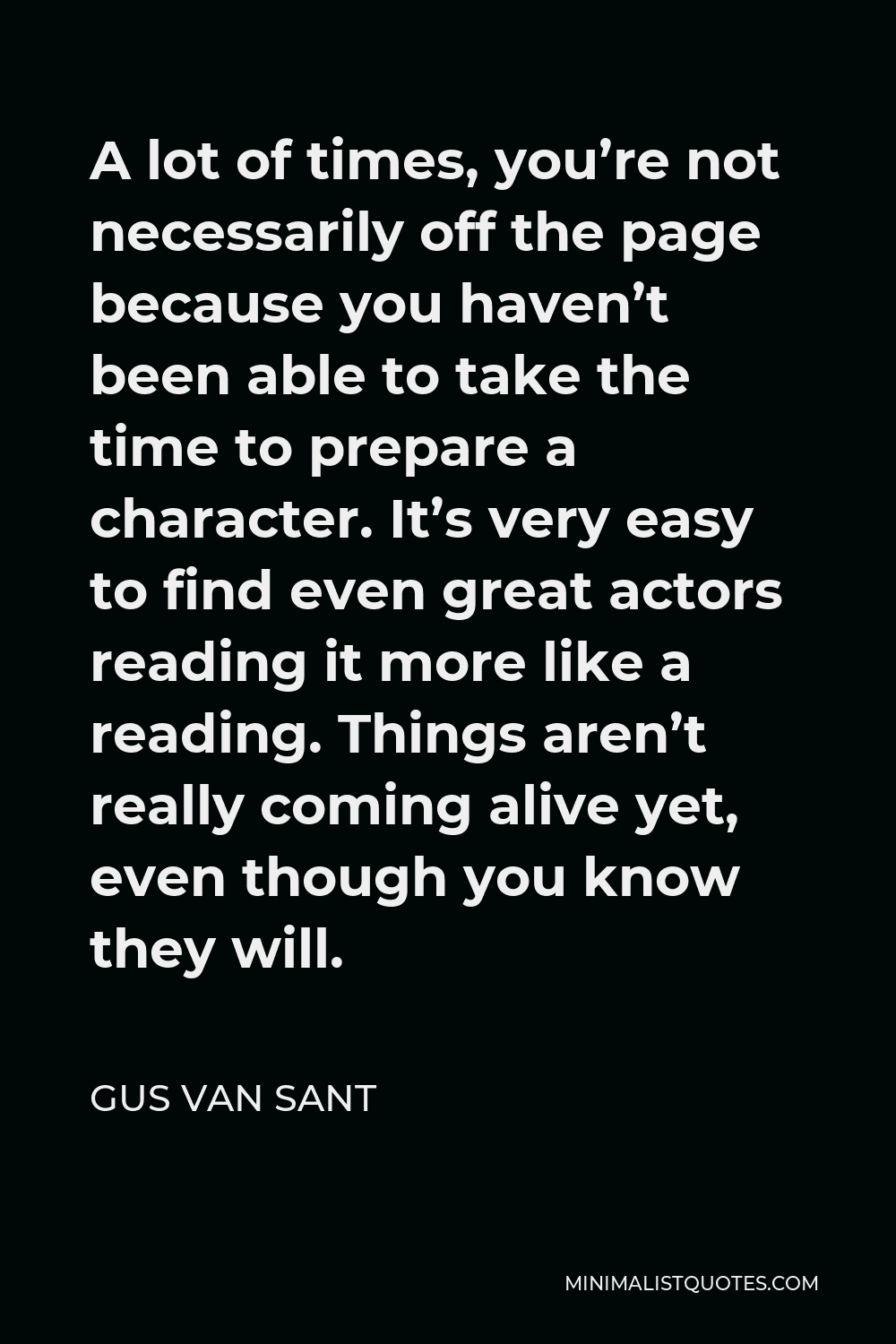
A lot of times, you’re not necessarily off the page because you haven’t been able to take the time to prepare a character. It’s very easy to find even great actors reading it more like a reading. Things aren’t really coming alive yet, even though you know they will.
GUS VAN SANT -





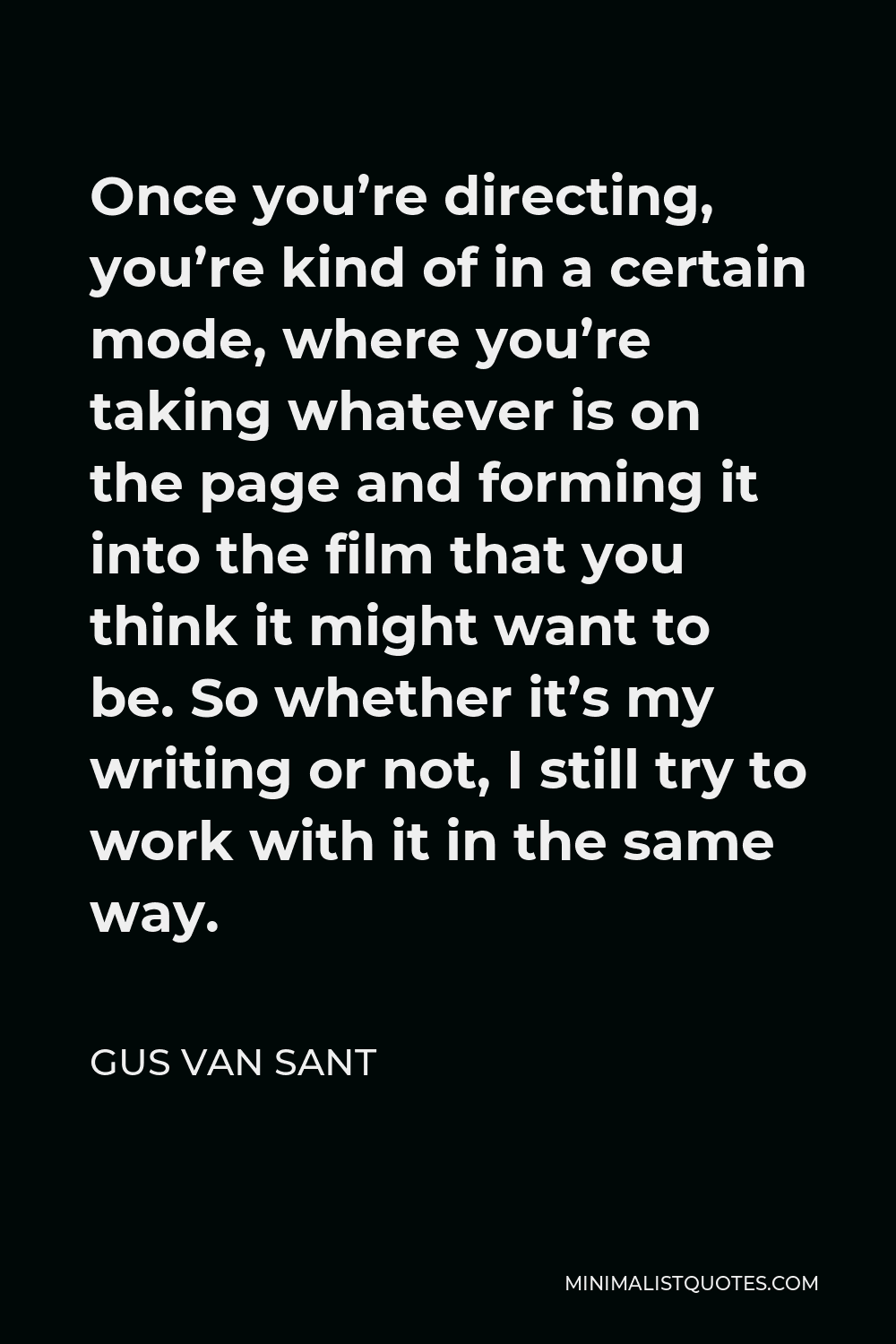
Once you’re directing, you’re kind of in a certain mode, where you’re taking whatever is on the page and forming it into the film that you think it might want to be. So whether it’s my writing or not, I still try to work with it in the same way.
GUS VAN SANT -





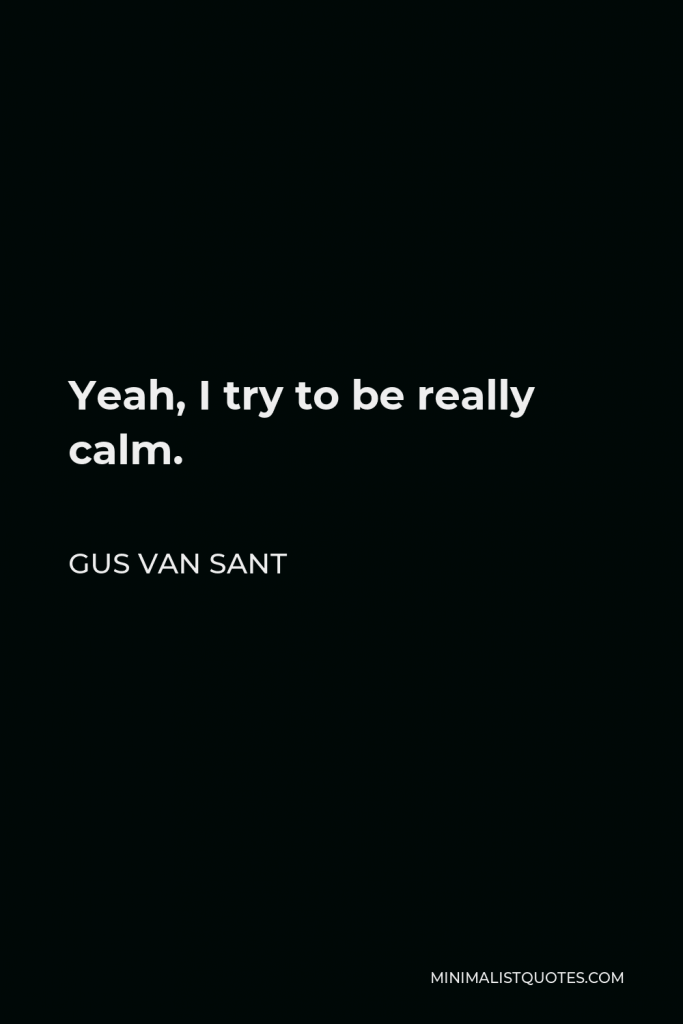

Yeah, I try to be really calm.
GUS VAN SANT -





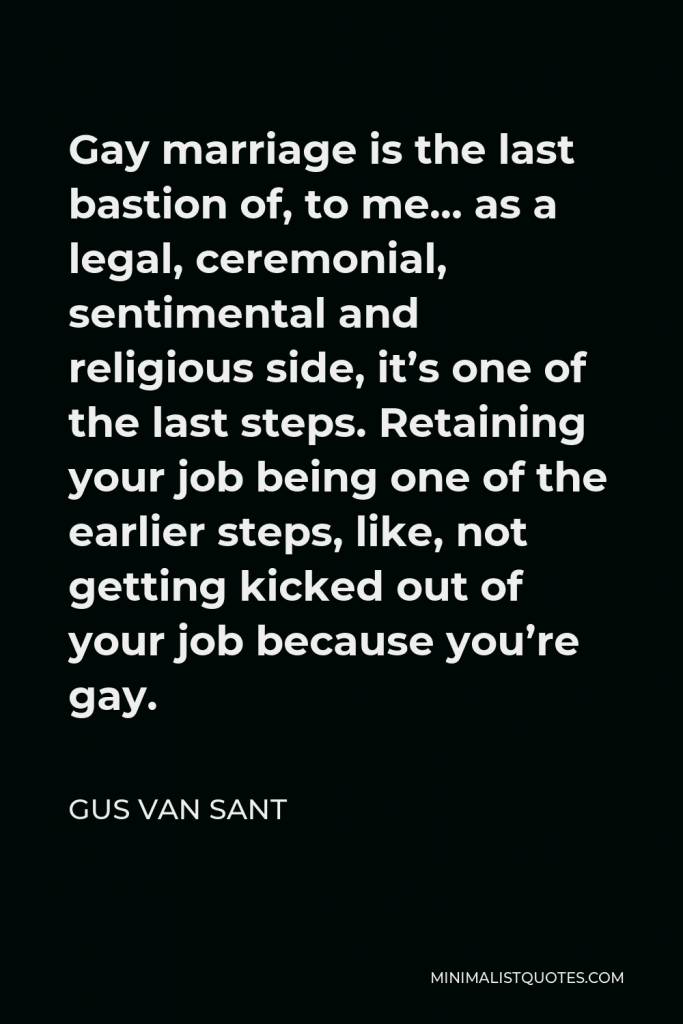

Gay marriage is the last bastion of, to me… as a legal, ceremonial, sentimental and religious side, it’s one of the last steps. Retaining your job being one of the earlier steps, like, not getting kicked out of your job because you’re gay.
GUS VAN SANT -





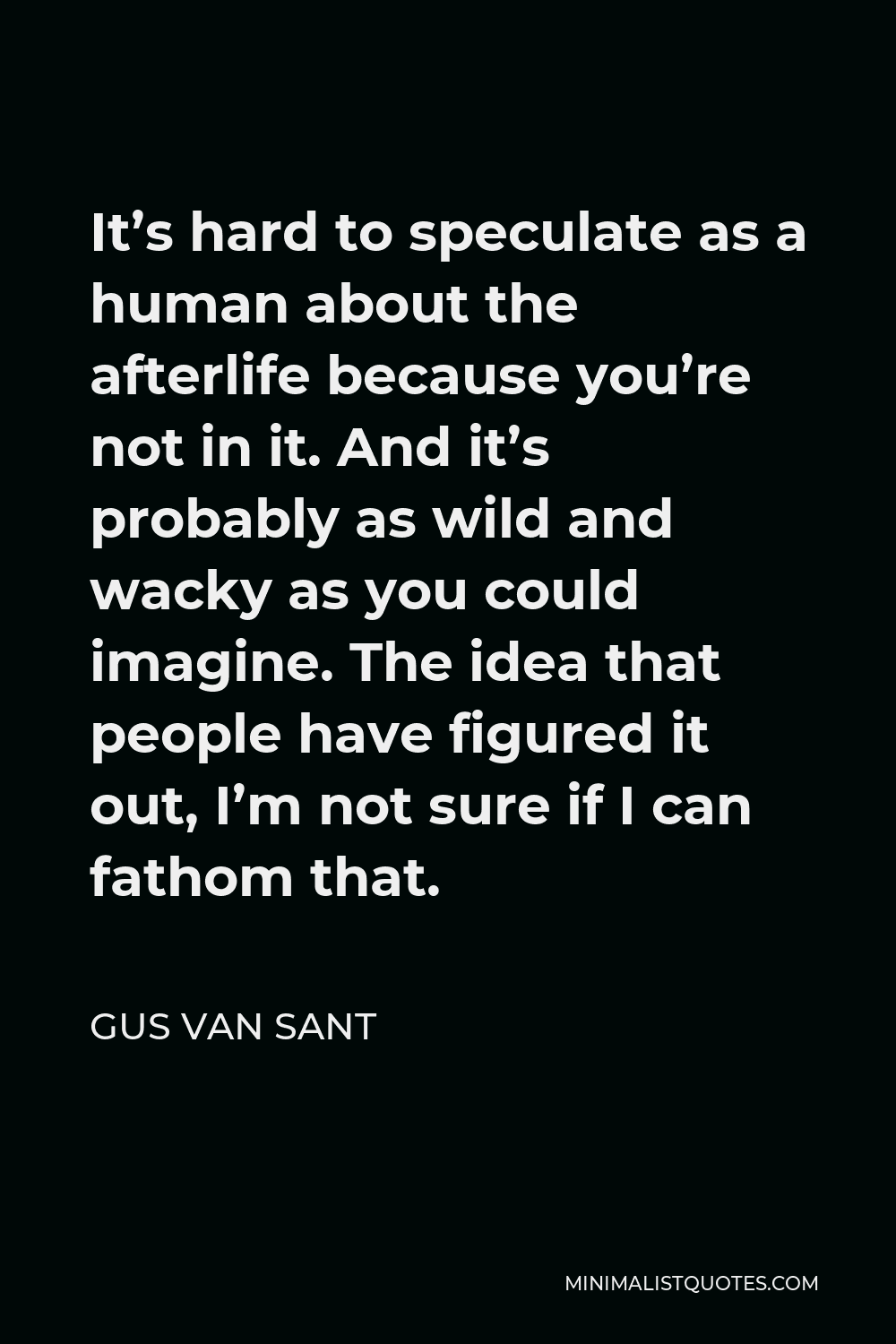
It’s hard to speculate as a human about the afterlife because you’re not in it. And it’s probably as wild and wacky as you could imagine. The idea that people have figured it out, I’m not sure if I can fathom that.
GUS VAN SANT -





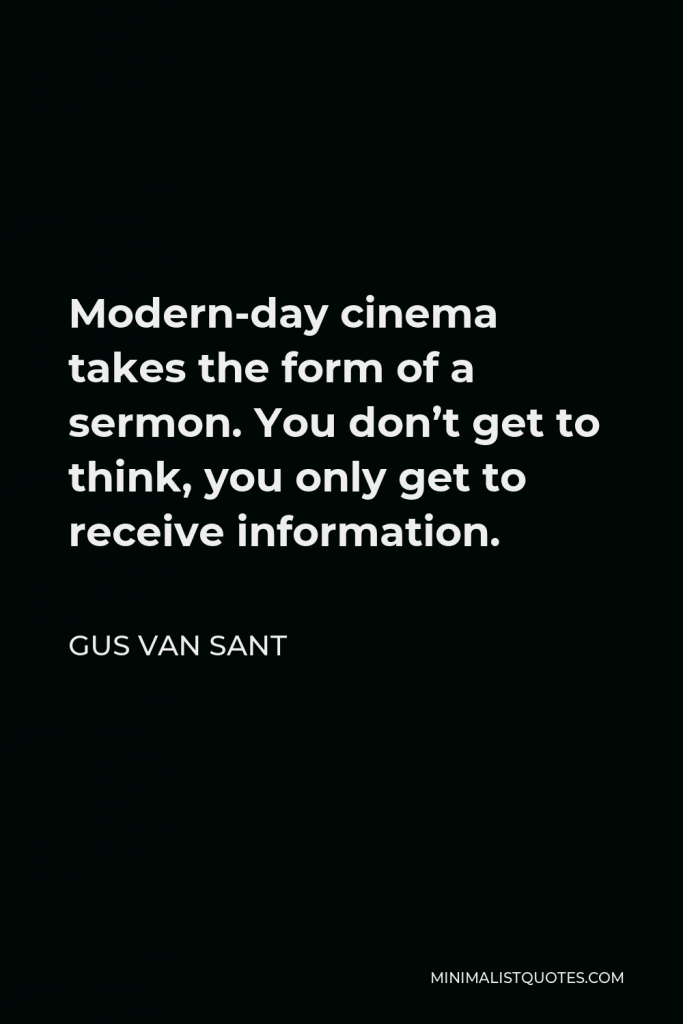

Modern-day cinema takes the form of a sermon. You don’t get to think, you only get to receive information.
GUS VAN SANT -





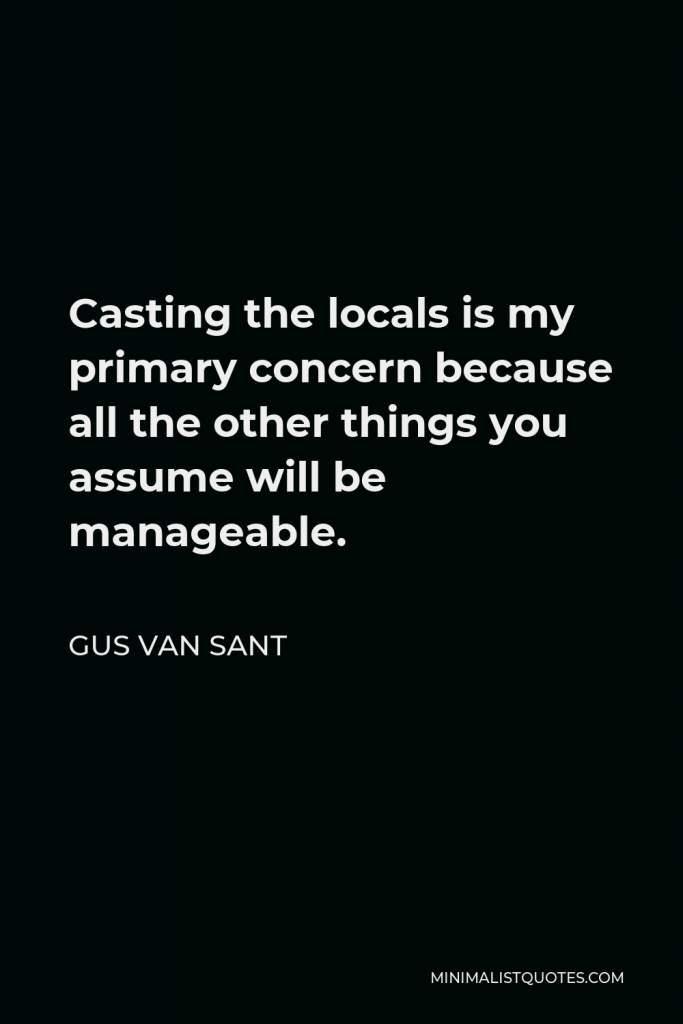

Casting the locals is my primary concern because all the other things you assume will be manageable.
GUS VAN SANT
